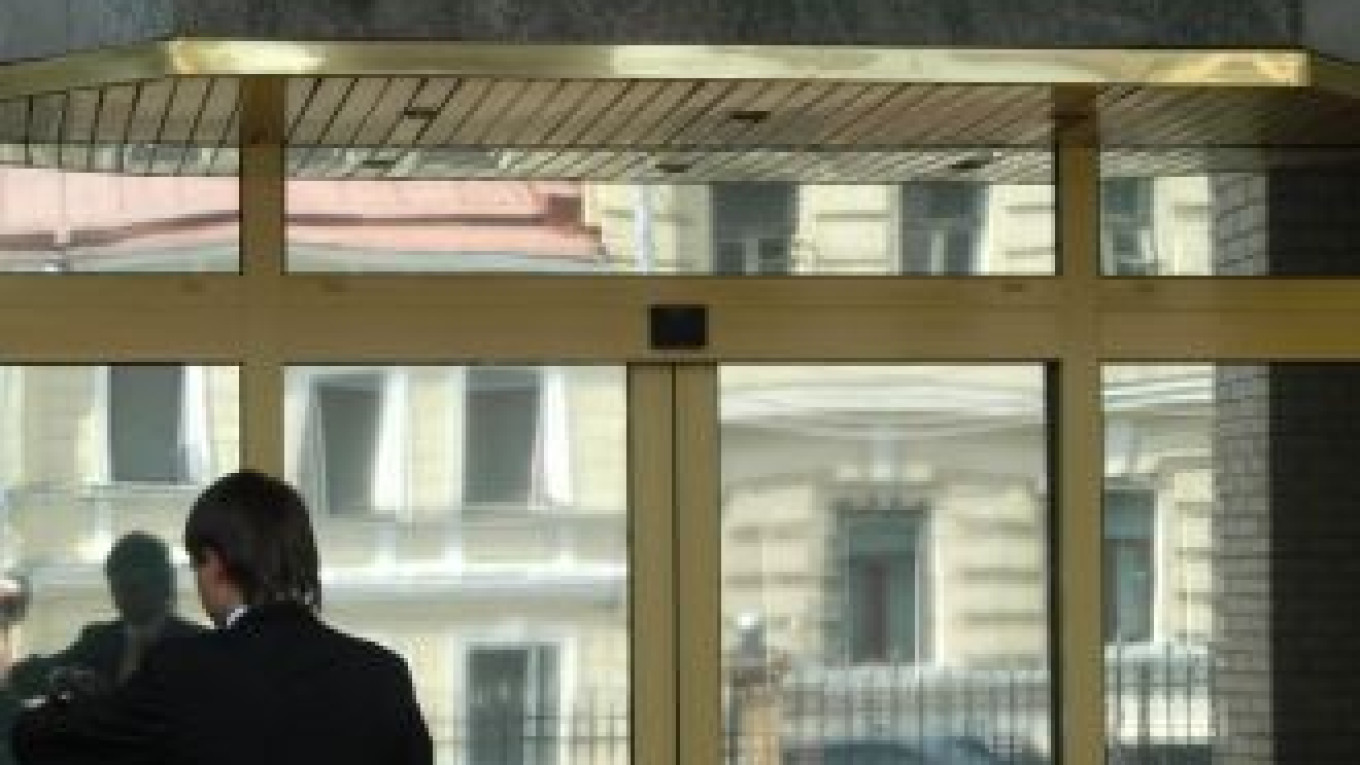Plans to lower Russia's deficit are in the works, even though it is already lower than the 2.7 percent of gross national product predicted earlier this year.
Besides a proposed tax hike, the Supreme Arbitration Court, with an eye to making paying taxes easier, unveiled a new project earlier this week to explain the first part of the notoriously confusing two-part Tax Code.
Because of uncertainty about the Tax Code, the government tries to bend the law to collect more money for the budget, while businesspeople interpret it to pay less money, Nalogovik law firm partner Dmitry Lipatov said. The project will make the laws clear and uniform all over Russia.
"The truth in a conflict between a taxpayer and a tax collector is often found in the courts," Lipatov said. "The explanation would be beneficial to taxpayers forced to prove their position in the courts."
The most problematic laws are those related to value-added tax, or VAT, and revenue taxes. A company must file two sets of paperwork for each of the taxes, which must be filed separately, Lipatov said.
The Tax Code is confusing for several reasons, tax experts said. The language of the code is difficult to understand. For example, at one point there is a sentence that contains 89 words, Lipatov said. Often there are no guidelines for concrete situations in the text. For example, taxpayers can file their taxes online, but there are no clear rules on how to do it.
In order to follow the tax law, several unrelated clauses must sometimes be put together, and they can contradict each other, Yunov, Khrenov & Partners lawyer Yelena Rovinskaya said.
But what causes the most problems is that the law changes very frequently. Changes are an annual occurrence. Sometimes changes are implemented in the middle or? end of the year and become retroactively effective from the beginning of that year, Lipatov said.
Galina Belikova, an Alinga Group tax and audit manager, said the confusion caused by the incomplete Tax Code often leads to corruption, with most being initiated by the tax collectors, Belikova said.
Tax officers have quotas, and if a company does not pay, they can make it very difficult for the company to function, Belikova said.
"They come and search for infractions. Then if there aren't any, they say, 'We need 1 million rubles, without a million we're not leaving,'" Belikova said.
In the past year, the process for filing taxes has been simplified and some taxes eliminated for certain taxpayers, including small businesses. But the budget is still billions of rubles short.
"Considering the budget deficit, one cannot count on the good graces of the tax laws," Lipatov said. "Taxes are the main source of income for the budget, and that income does not cover all the planned expenses."
A Message from The Moscow Times:
Dear readers,
We are facing unprecedented challenges. Russia's Prosecutor General's Office has designated The Moscow Times as an "undesirable" organization, criminalizing our work and putting our staff at risk of prosecution. This follows our earlier unjust labeling as a "foreign agent."
These actions are direct attempts to silence independent journalism in Russia. The authorities claim our work "discredits the decisions of the Russian leadership." We see things differently: we strive to provide accurate, unbiased reporting on Russia.
We, the journalists of The Moscow Times, refuse to be silenced. But to continue our work, we need your help.
Your support, no matter how small, makes a world of difference. If you can, please support us monthly starting from just $2. It's quick to set up, and every contribution makes a significant impact.
By supporting The Moscow Times, you're defending open, independent journalism in the face of repression. Thank you for standing with us.
Remind me later.


